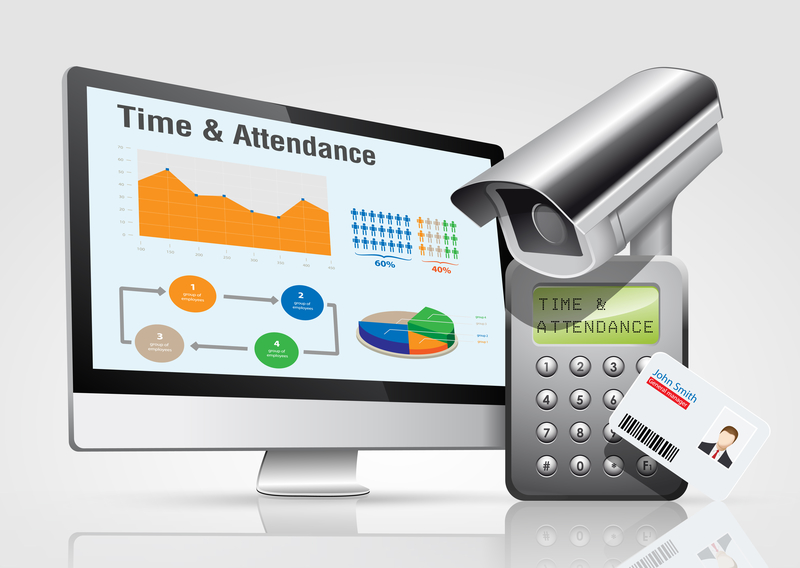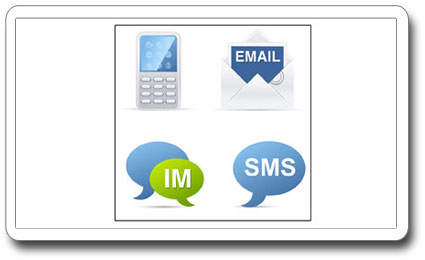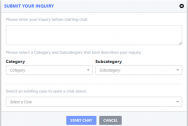Is Time and Attendance Collection in White Collar Businesses Necessary?

Automated Time and Attendance (T&A) systems have been on the market since the late 70’s – starting with standalone “punch clocks” that calculated employee worked hours and enforced basic attendance policies (late-in, early-out, etc.). The next generation of clocks moved to a computer based environment, connecting to clocks via modem or hardwire. Then came networked (multi-user) systems, client-server systems, and finally web based systems.
In the beginning, these applications were used almost exclusively in blue collar and other hourly businesses. Employees in these organizations were paid for hours worked, not on a salary basis. So the prospect of strict (and virtually instant) enforcement of company pay policies drove the adoption of automated T&A systems. Common markets for T&A systems were (and still are) manufacturing, retail, distribution, government, healthcare, construction, building maintenance and other service industries.
It didn’t take long for other markets to see the benefits of automated time accounting, even if the software was not used to generate actual payroll data. Many professional companies are required to run on-premises reports for legal and safety purposes. Others bill clients for hours worked on projects. Companies in highly competitive industries need to keep a careful eye on employee productivity, so excessive tardiness or early-outs can be very costly.
Employees in professional roles (i.e., white collar) often, frankly, resent the “Big Brother” intrusion of new time collection systems. Even when management assures them that they are really essentially tracking daily attendance and absenteeism, and not hours worked, new T&A installations are not exactly a welcome site to most employees.
By the way, did you know your government can track your daily movements, with Easy-Pass toll collection devices, ATM use, cell phone and automobile GPS, and your general Internet use? Your ISP knows where your web-based devices are and when you log in to them. “Big Brother”? We hope not. But just read the recent stories about terrorist attacks. The articles always mention how government officials discover the terrorist’s every movement. And that’s even for the bad guys who are intentionally trying to stay in the shadows and remain anonymous. The average citizen is oblivious to this capability.
Isn’t it reasonable, therefore, for your employer to track your daily “ins and outs”? They certainly have that right. But does it really benefit the company as well as the employee? That is obviously a management decision, which should be made only after careful analysis of potential productivity gains vs. almost certain employee push back.
For example: My son works for a multi-million dollar not-for-profit organization. He has many accounts assigned to him, and weekly projects that must be completed on time. He is responsible for each account’s general satisfaction with the company’s services. 100% of his activities are tracked and managed by a proprietary software system developed for the organization’s specialty services.
Whether he works 40 hours or 50 or 30, that proprietary system knows that he has met company objectives for his role. Projects are completed on time, and customer satisfaction is high.
He is paid on a salary basis but must “clock” in and out for the day, and also for lunch, via a web browser app.
Is this fair or even necessary? Let’s dig further. The organization has many thousands of clients, and the company is essentially owned by these clients (similar to a credit union where the customers are the sole shareholders). Many clients conduct transactions through the organization in the hundreds of thousands and even millions of dollars. Many client transactions are in high volume but monetarily in tiny single digits.
Clients’ careers and livelihoods depend on the services the company provides. They have the right to audit records and procedures. They have the right to visit the main offices and talk to their account managers personally. Though time keeping records are not necessary for payroll or employee performance reviews, they are a primary source of data for analyzing job role efficiency, FTE requirements, as well as providing detailed audit information.
So yes, in my son’s company, automating time collection should reasonably be considered both fair and necessary, though at first it may not seem obvious. Salaried employees should understand the full benefits of automating time collection from the company’s point of view; before protests and dissension begin to simmer (it will happen). After all, an organization that is well managed is the best organization to work for.






Whether he works 40 hours or 50 or 30, that proprietary system knows that he has met company objectives for his role. Projects are completed on time, and customer satisfaction is high. Very well performance.
I loved your blog and complexly agreed with you, the automatic time and attendance collection option works much better way. If I am a proprietor I have all the rights to judge my staff’s time routine as they are getting paid for their time they are paying me for my project to complete.
Awesome post, Thanks for sharing.
It is a wonderful article stating about the time and attendance. It makes the work straight and easy for us. I enjoyed reading this article. You would get the best review over here and would suggest others too. I like how you have researched and presented these exact points so clearly.